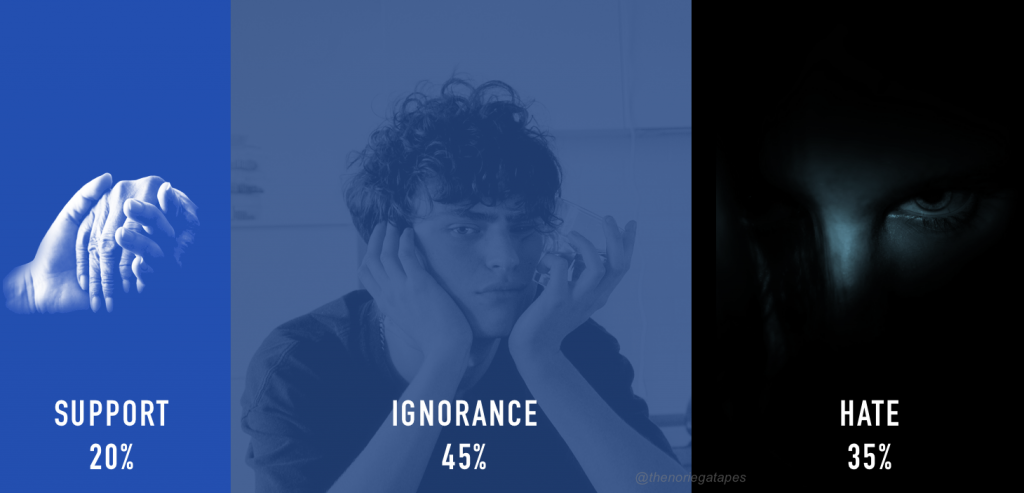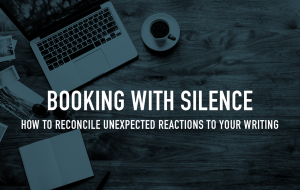
A Novel Feeling
I first noticed something was wrong when an old friend ghosted me. He had agreed to appraise the manuscript for The Noriega Tapes, and we had even agreed on payment for his time. When I followed up with an email a few weeks later the silence became uncomfortable. I decided to reach out on social media and realised that he had deleted me. I couldn’t understand it. If he had an issue with the novel, why not just say? I was overcome with self-doubt, wondering if perhaps the novel was terrible and he just couldn’t bring himself to tell me.
I paid for an editor’s appraisal of my novel, and the feedback couldn’t have been more complementary. The editor loved the originality of the plot, the depth of research, characters and writing style. My confidence came back. I decided that my friend’s response was just a strange one-off. But then the same pattern of silence appeared when I gave the manuscript to family members. I either received responses echoing the editor, or nothing at all. For some family members, that silence has since continued.
My theories about why people were “going silent” became more imaginative. Were they scared of the novel’s controversial take on the US Invasion of Panama? Were they worried about the use of historical figures as characters, or my negative portrayal of the CIA? These theories seemed to gain some credibility after receiving strongly worded comments online about the novel’s content, and joking suggestions that I “get life insurance”.
After self-publishing The Noriega Tapes the pattern of silence continued with friends, family and work colleagues. Any suggestion of the novel in conversation would either bring excited questions, or introspective looks followed by silence. A lot of people couldn’t quite understand how or why an Australian geologist would write a spy thriller set in Panama – and that was to be expected – but I soon noticed a trend in the type of people with the glazed expressions, and those who became trolls online.
The Curse of Self-Publishing
The writing community on social media has taught me that my experience is far from unique. In fact, it seems to be the norm. For new writers and those with low self-esteem, this is a huge barrier to continuing to write or advertise their work. However, these reactions should not be taken to heart. In fact, the silent reactions of your friends and family most likely have nothing to do with you, and everything to do with them.
I reached out to writers individually who had filled out the TNT survey and those who responded to tweets about the unexpected reactions of their friends and family to their publications. The responses I received were surprisingly forthcoming. In some cases, they were deeply upsetting. I no longer view my experience as a bad case of “the curse of self-publishing” and have learned to reconcile unexpected reactions to my novel and move on quickly.
Rather than try to speak on behalf of others, I have collated some of the more poignant quotes from other authors below.















Reaction Categories
When I started receiving the above responses I noticed that reactions tended to fall into three distinct categories: support, ignorance and hate. I reached out again via a survey (using the list from the TNT survey) with one basic question: what do you feel is the percentage of each of these reactions in response to your writing? There were over 40 responses, and as you may expect they were quite varied. Below is the average for each category. I’m sure a lot of writers would not be surprised by these numbers, but for those starting out and planning to self-publish, they could be quite sobering.

Why So Much Hate?
According to writers surveyed, more than a third of people respond to their work with hate. That’s an awful lot of people, and from the outset it seems excessive. But it’s an unfortunate truth that many people simply don’t like to see others succeed.
A stigma still exists with self-publishing, and it provides an easy avenue for ‘haters’ to express reservations about your achievements. Without even looking at your work, many people will conclude that you are not a real author. There will also be those who instinctively react with negatively directed questions – how much money did you spend on publishing? Is it really worth it? Do you think your sales will ever break even? Do you regret putting yourself out there like this?
It is important to remember that these reactions say more about that person than they do about you. All of us have insecurities and regrets, and when we see others achieve things that make them happy, there’s often an instinctive reflection upon our own achievements. Being able to bring a person down, even a little, helps satisfy that inner desire to feel ‘on par’. Unfortunately the bonds of friends and family only seem to amplify these responses.
Reconciling Reactions to Your Writing
It has now been over a year since I self-published The Noriega Tapes, and I can confidently say that the silence I receive in response to my novel doesn’t bother me. I’m also glad that my experience isn’t half as bad as some of those listed above, and the level of hate that I’ve experienced has been minimal.
For those who are trying to reconcile with the cold reactions of family and friendly, remember these key points:
- Most people simply aren’t readers. It doesn’t matter how much they love you, it will still be a struggle for them to open your book
- Those who are ‘readers’ often only read in one or two genres. If your genre doesn’t appeal to them, it will be a struggle for them to read it
- The attention you expect from your writing should never exceed the attention that you give to that person’s extracurricular activities. If they are into artwork that you show little interest in, then is it really warranted to expect that they will read (and enjoy) your book?
Your best source of honest feedback will come from beta readers and professional editors. These readers are really the only ones whose opinion you should spend time considering.


